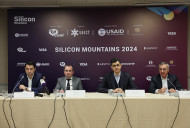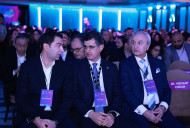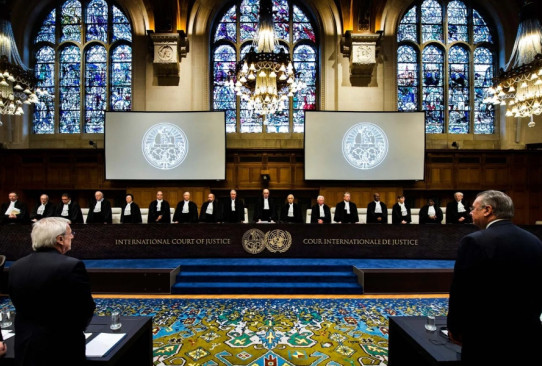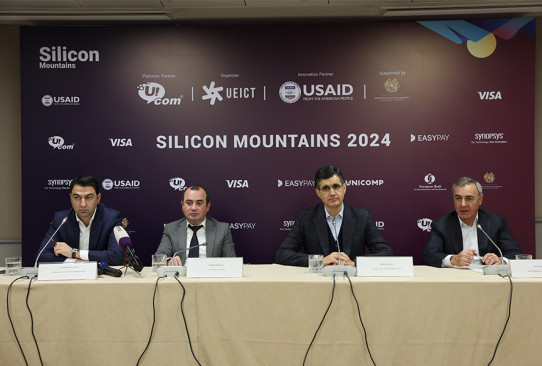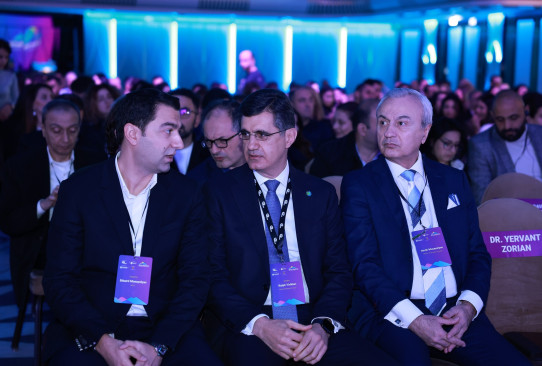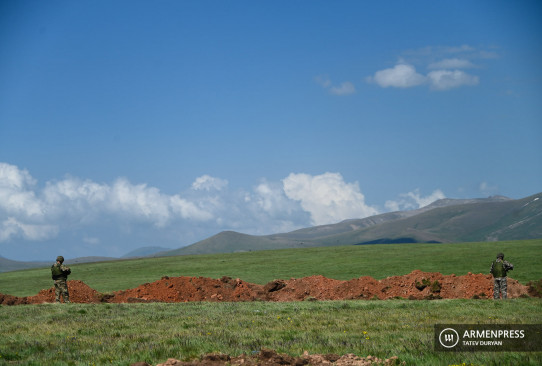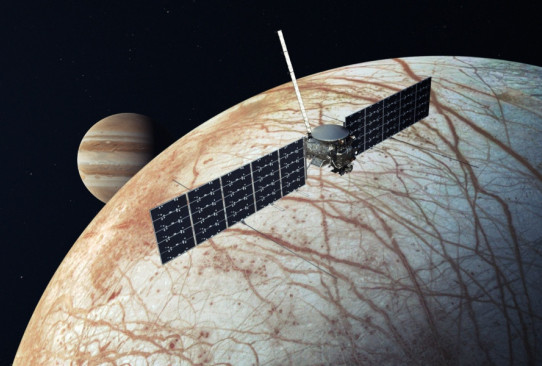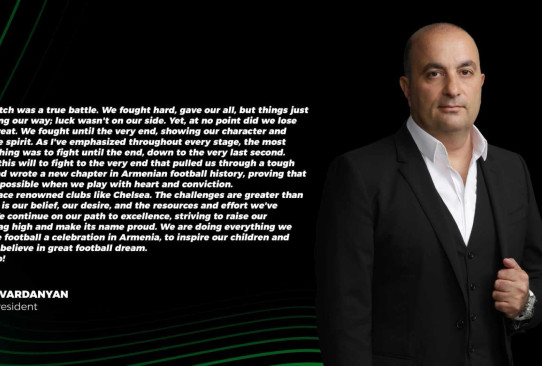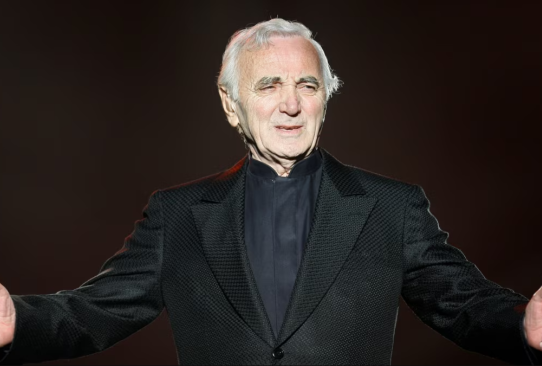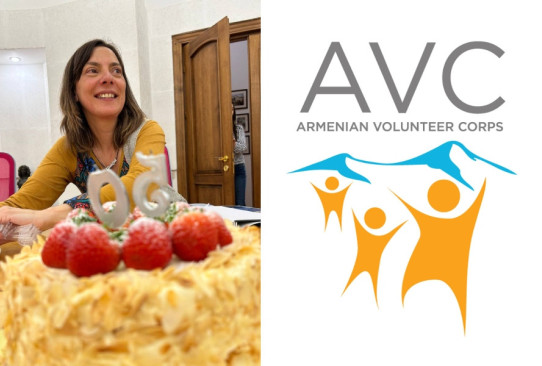Pashinyan-Aliyev panel talks 'came as a disappointment' to many observers – Richard Giragosian
Hripsime Hovhannisyan
In an interview with Tert.am, Director of the Regional Studies Center (RSC) Richard Giragosian shared his evaluations of the Armenian and Azerbaijani leaders’ panel discussion in Munich and the current developments in the Nagorno-Karabakh (Artsakh) peace process in general.
Mr Giragosyan, in his remarks addressing the debate between him and the Azerbaijani president on the sidelines of the Munich Security Conference, Prime Minister Nikol Pashinyan said his aim was to raise an international awarness of Armenia’s constructive position. Do you think Armenia was able to demonstrate the outcome when it was accused of committing genocide and seizing territories?
Organized as a moderated panel discussion, Armenian Prime Minster Nikol Pashinyan and Azerbaijani President Ilham Aliyev went head to head on 15 February in a contentious 45-minute exchange that was more of a duel of historical diatribes than a debate over diplomatic discourse. For example, speaking first, the Azerbaijani president opened with a look backwards, contending that “first we need to go back and look at the history of the issue” that continued with a historical narrative that started with a reference to an obscure 1805 treaty. Sadly taking the bait, the Armenian premier then tried to outdo his rival by reaching even further back, turning to the first-century B.C. period of history.
From this point on, the speakers largely lost and never fully regained the attention of the audience, which despite a polite silence, was clearly confused by a flurry of obscure historical references. And in an exchange that seemed aimed at their own domestic audiences, the leaders not only spoke beyond the Munich audience, but also spoke past one another. For many observers with little or no prior awareness of the Karabakh conflict, the panel was a disappointment. And for those with a deeper knowledge of the conflict, it was a missed opportunity for elevating the discourse above and beyond the same stale script and bellicose rhetoric that has come to dominate diplomacy over the issue.
Mr. Pashinyan also said that he had kept his most important promise to never conceal any element peratining to the process. Do you think the debate really helped unmask certain elements? Are we aware of what is being discussed at the close-door meetings with President Aliyev?
Despite my disappointment with the Munich “discussion,” the exchange was important for several reasons. And it started off well, with the Armenian premier warning that “we are repeating every time the same thing,” and noting that “the international community is tired of hearing the same thing, and I think we need to bring some new ideas.”
First, the Munich event offered a unique and unprecedented opportunity for the Armenian and Azerbaijani leaders to present their views and visions of the conflict in a public setting before an interested yet neutral audience. For a conflict that is a centerpiece for a strictly closed, confidential and closeted form of diplomatic mediation, the public airing of the differences of each side was an important achievement.
In fact, such public presentations are far too rare, although there is an obvious need for greater engagement by both leaders, of their own population, as well as before the international community. In this regard, however, there has been some progress to date.
And Prime Minister Pashinyan has introduced a refreshing degree of transparency and accountability before his domestic constituency, stressing that any resolution to this conflict must be acceptable to all parties, including the population of both Azerbaijan and Nagorno Karabakh, and not just Armenia.
In that context, a second important aspect of the Munich exchange was the fact that despite a degree of disappointment with the devolution of discourse, it was a revelation of the reality of this conflict. From the over-reliance on history to the stark divergence of views, the event only confirmed the inherent difficulty in bridging the divide between the Armenian and Azerbaijani positions. Such a wide divide was only reinforced at the close of the discussion, as President Aliyev instead insisted on getting in the last word to reiterate a bellicose repeat of historical claims that extended to even the Armenian capital Yerevan.
And a third, related significance was the importance of revisiting this particular conflict as both a unique element of insecurity along Europe’s eastern borders and as reminder of the need for greater European attention and engagement in the Karabakh conflict. Moreover, as the only such conflict with no Russian military presence, it also has the dangerous potential for broader spillover, drawing in both Turkey and Iran, as well as Russia, in the event of renewed hostilities.
What details do you think were exposed in terms of providing a more comprehensive knowledge of the conflict settlement process?
The lack of information on the closed negotiation only encourages disinformation. And looking beyond Munich, but to the recent summit, we see a need for greater transparency.
For example, in an unexpectedly intensive round of talks that lasted for two days, the Armenian and Azerbaijani foreign ministers met in Geneva for what was described as the “most intensive” negotiations in years. With the French, Russian and U.S. mediators from the OSCE Minsk Group present, Foreign Ministers Zohrab Mnatsakanyan and Elmar Mammadyarov reportedly held “thorough discussions” and pledged to “support the “intensification of negotiations,” suggesting that confidence-building measures (CBMs) will continue over the coming months. In a joint statement issued following the talks, the “intensive discussions” were said to have focused on “possible next steps to prepare the populations for peace; principles and elements forming the basis of a future settlement; and timing and agenda for advancing the settlement process.” The mediators also reaffirmed the necessity of “confidentiality in the settlement process” and “the need for creativity and a spirit of compromise.” The Geneva meeting was the latest round of negotiations and follows a shorter, one-day session in Bratislava in early December 2019.
Thus, although it is important to note the achievement of these leaders in agreeing to begin “preparing their population” for peace, it is also imperative that equal attention is devoted to preparing the politicians for peace as well. But despite statements calling for “taking concrete measures to prepare the populations for peace,” there has not been much progress in that direction. Moreover, looking at Azerbaijan, it seems that the reverse is true, as Baku has only tended to maintain its aggressive and negative rhetoric directed against Armenia and Artsakh.
This was most evident in the “celebration” of convicted murderer Ramil Safarov, an Azerbaijani army officer who was serving a life sentence in a Hungarian prison after a Hungarian court had convicted Safarov of axe-murdering a sleeping Armenian officer, Gurgen Markarian, during a NATO training course in Budapest 16 years ago: on 19 February 2004. The later extradition to Azerbaijani by the Hungarians quickly turned into an insulting farce, as the convicted murderer was welcomed as a “hero” by the Azerbaijani government once he landed in Baku.
By marking the anniversary of that murder, and hailed the killer as a celebrated hero, it seems overwhelmingly clear that Azerbaijan has a lot of work to do to “prepare” and not poison its population.
And regarding promises for strengthening confidence-building measures (CBMs), there are some additional problems. First, the record of Azerbaijan’s promises is matched by its history of failing to meet its obligations. Promises have not been kept before and Baku has failed to fulfill its promises in recent years. This means that the international community needs to demand that Baku meet its expectations for CBMs. Second, such support for confidence-building measures should include all parties to the conflict, and Karabakh needs to be present and represented. There is no other way to expect CBMs to work.
And finally, the international community needs to widen the audience, include more civil society participation and share information on the status of the peace talks, but also need to not impose any position of policy. The conflict can only be resolved by the parties themselves, and although international support and mediation is important and helpful, it is not the answer alone.
Videos
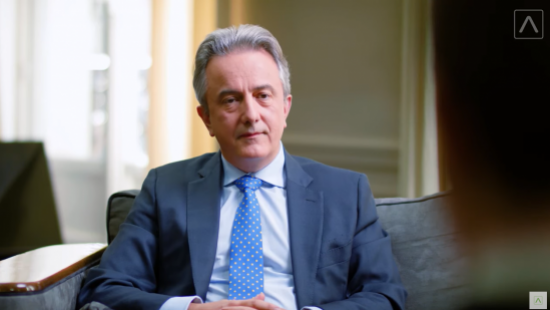
Interview with Francis Malige, EBRD Managing Director
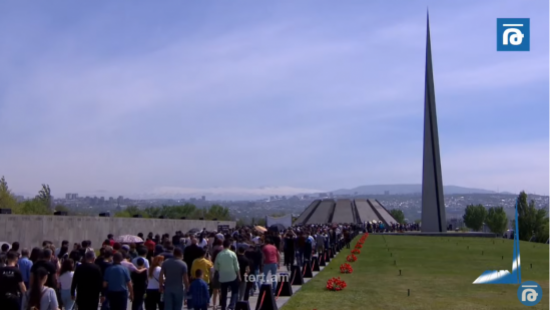
Armenians Commemorating 106th Anniversary of Genocide
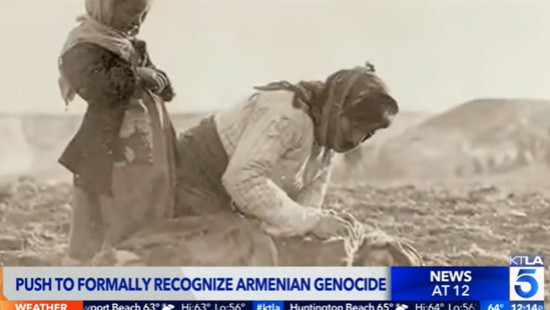
Biden Under Pressure to Recognize Armenian Genocide - KTLA 5 News
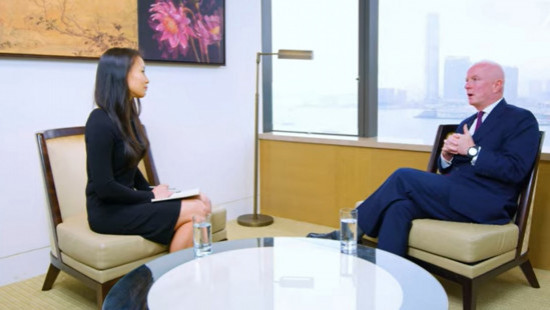
Governance and Oversight Capacities Account for Our Bank's Robust Management System - Philip Lynch, Independent Board Member at Ameriabank

'Mr. President, It Is Now in Your Power to Right Decades of Denial' - US Congressman Adam Schiff Urges Joe Biden to Recognize Armenian Genocide
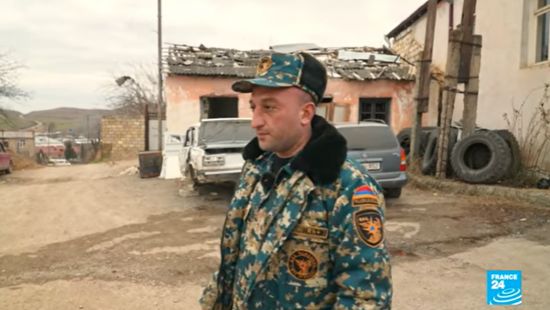
Armenians of Nagorno-Karabakh in Despair After Trauma of Military Defeat - France 24
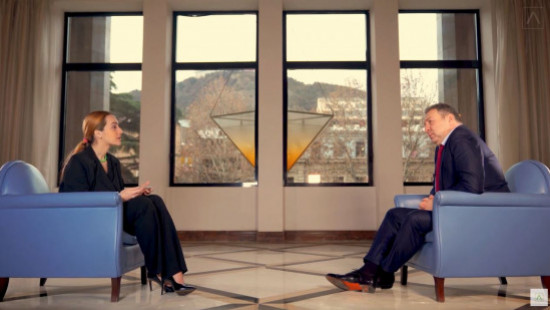
Interview with Kakhaber Kiknavelidze, an Independent Member of Ameriabank Board of Directors

Only Terrorists Keep Hostages, Putting Forward Preconditions for Their Release - Edmon Marukyan

Rep Adam Schiff Says Congress Should Recognize Artsakh
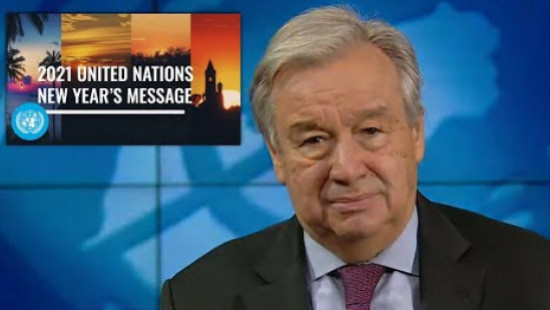
UN's Guterres Issues Global Appeal to Make 2021 'Year of Healing'

NASA's Mars 2020 Perseverance Rover Landing Animations

Azerbaijan Uses Prohibited Phosphorus Chemical Munitions - Defense Army Video

Artsakh Defense Army Units Neutralizing Azerbaijani Arms Supplies

Artsakh Defense Army Units Neutralizing Azerbaijani Drone
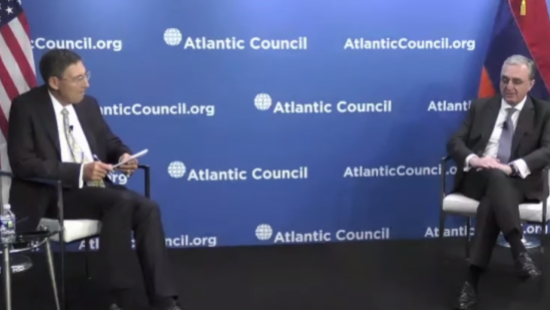
Nagorno-Karabakh's Status Has Been At the Heart of Our Approach - Zohrab Mnatsakanyan

Artsakh Defense Army Releases Video Featuring Damaged Azerbaijani Military Equipment

Artsakh Defense Army Units Inflicting Manpower Losses on Azerbaijan

Gas Pipeline Damaged in Azerbaijani Fire Targeting Nagorno-Karabakh's Capital

President Armen Sarkissian Meets Emmanuel Macron at Élysée Palace

Artsakh Defense Army Neutralizes Azerbaijani Military Hardware
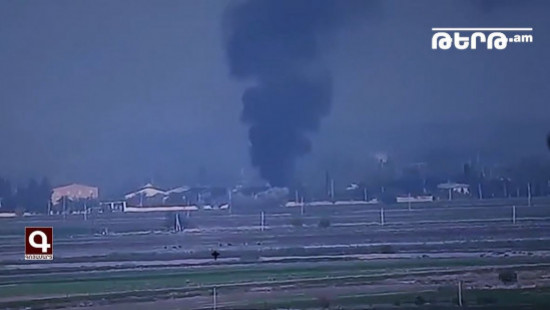
Artsakh Defense Army Units Neutralizing Azerbaijani Military Infrastructures

President Armen Sarkissian Meets with NATO Secretary-General in Brussels
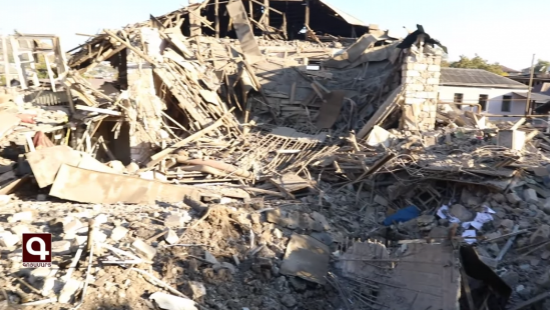
Buildings and Homes Lying in Ruins in Nagorno-Karabakh's Capital After Azerbaijani Shelling
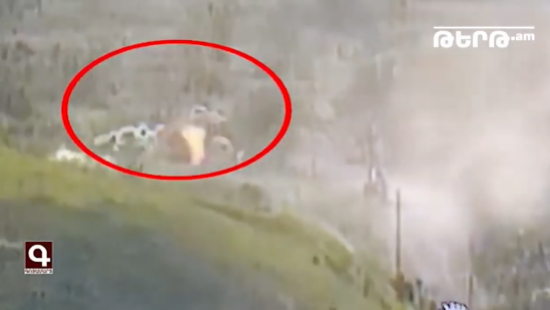
Artsakh Defense Army's Precision Fire Gives Deadly Blow to Enemy
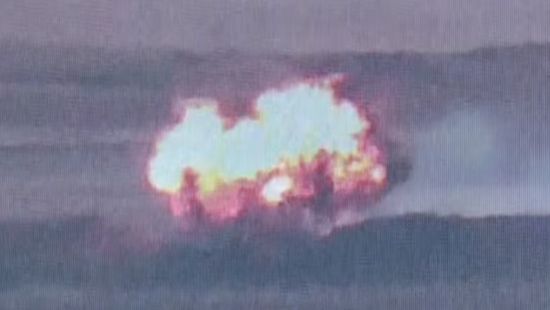
Artsakh Defense Army Units Destroying Azerbaijani Tank

Zohrab Mnatsakanyan: Ceasefire Does not Mandate Azerbaijan to Kill Civilians and Hit Civilian Settlements
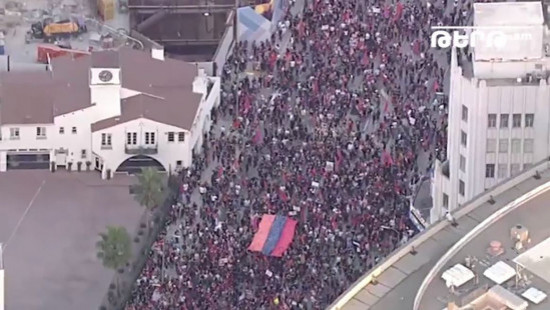
Armenians Protest Outside Turkrish Embassy in Los Angeles
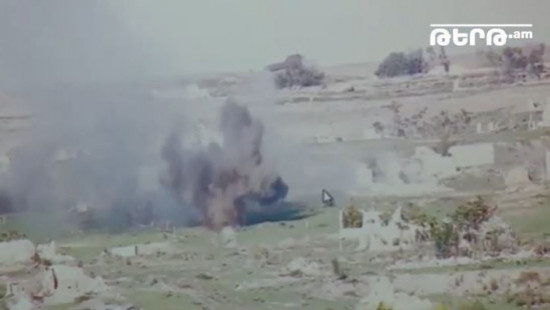
Losses in Azerbaijan's Military Featured in Defense Army Footage
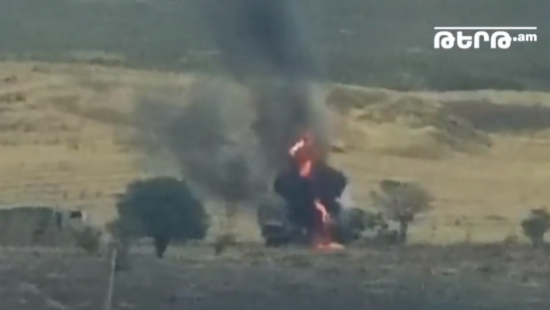
Artsakh Defense Army Neutralizing Adversary's Transport Column
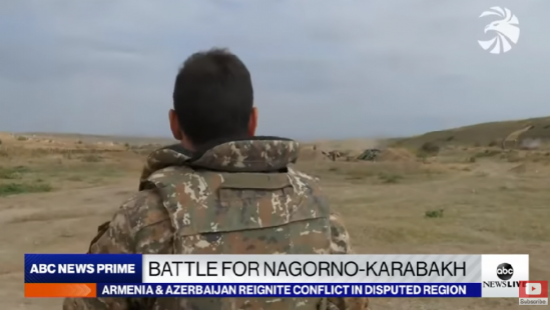
Turkey openly backs Azerbaijan 'far more aggressively than in the past' - ABC News on Syrian mercenaries fighting in Karabakh
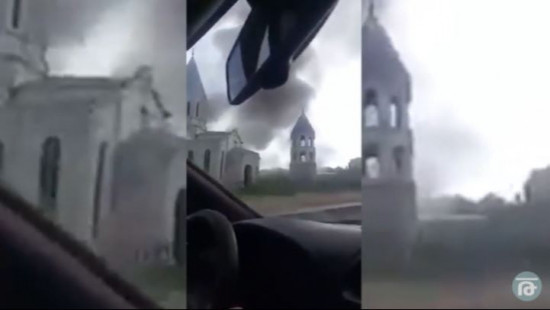
Iconic Armenian Church Hit in Azerbaijani Attacks in Nagorno-Karabakh City (photos)
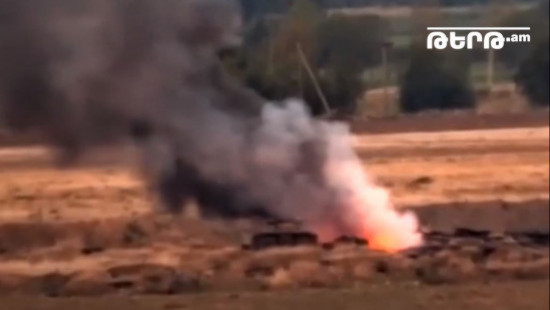
Artsakh Defense Army Continues High-Precision Strikes
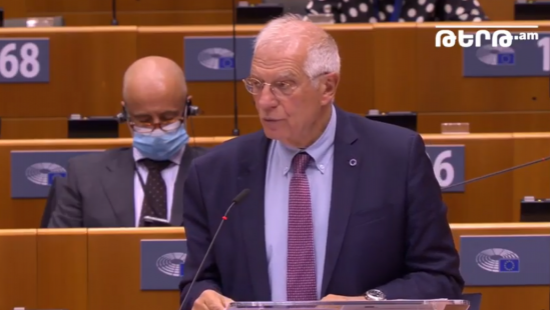
War Situation in Karabakh on European Parliament's Agenda
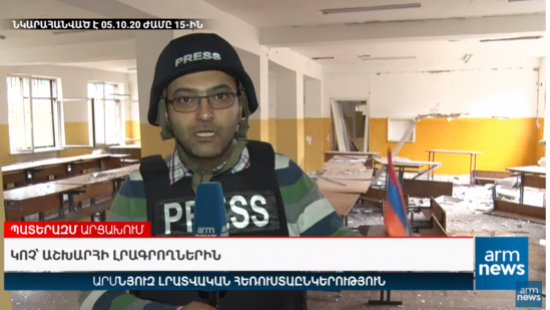
Call for Urgent Action: Armenian Journalist Brings Intn'l Colleagues' Attention to Situation iin Artsakh After Azerbaijani Attacks
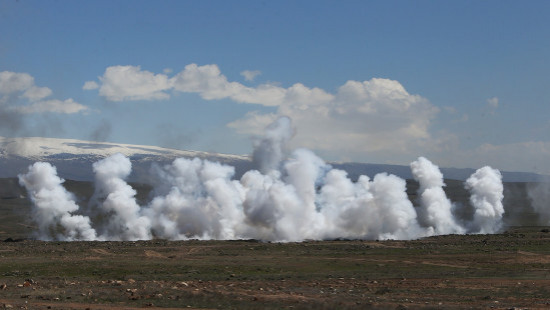
Turkey's Support to Syrian Mercenaries Fighting Against Artsakh: Facts About Azerbaijani Aggression
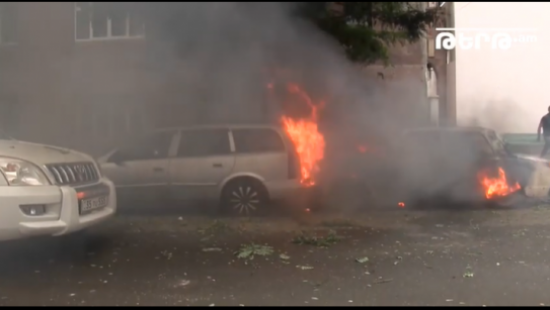
Nagorno-Karabakh's Capital Under Azerbaijani Strikes
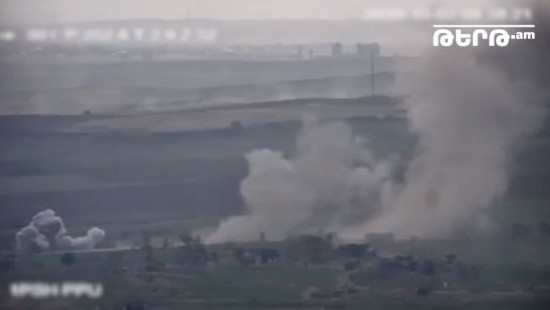
Armenian Armed Forces Neutralize Azerbaijani Defense Positions
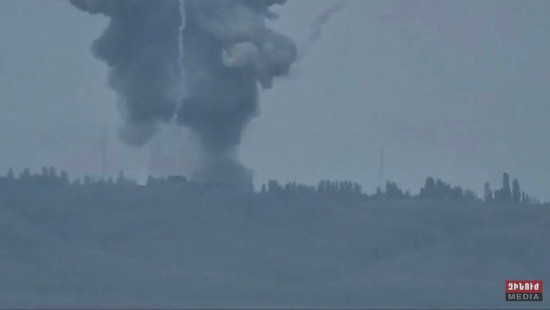
ArmenianTroops Destroy Azerbaijani Armored Fighting Vehicle on Frontline
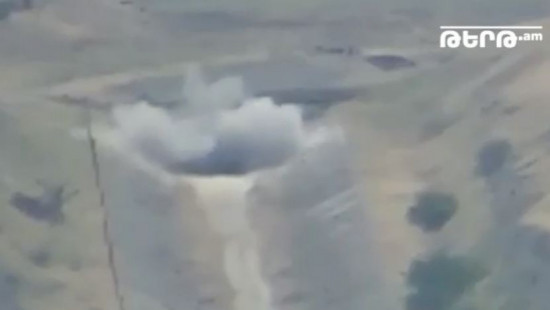
There is a solid evidence that Azerbaijan has launched a thoroughly planned attack on the NKR
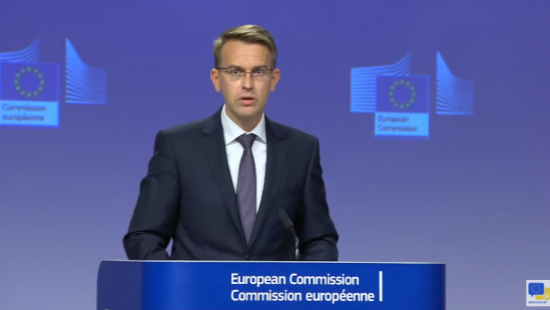
EU calls for Immediate End to Hostilities over Nagorno-Karabakh
-
 15:20 • 24.05.21
Interview with Francis Malige, EBRD Managing Director
15:20 • 24.05.21
Interview with Francis Malige, EBRD Managing Director
-
 11:39 • 24.04.21
Armenians Commemorating 106th Anniversary of Genocide
11:39 • 24.04.21
Armenians Commemorating 106th Anniversary of Genocide
-
 09:40 • 23.04.21
Biden Under Pressure to Recognize Armenian Genocide - KTLA 5 News
09:40 • 23.04.21
Biden Under Pressure to Recognize Armenian Genocide - KTLA 5 News
-
 15:34 • 22.04.21
Governance and Oversight Capacities Account for Our Bank's Robust Management System - Philip Lynch, Independent Board Member at Ameriabank
15:34 • 22.04.21
Governance and Oversight Capacities Account for Our Bank's Robust Management System - Philip Lynch, Independent Board Member at Ameriabank
-
 14:09 • 21.04.21
'Mr. President, It Is Now in Your Power to Right Decades of Denial' - US Congressman Adam Schiff Urges Joe Biden to Recognize Armenian Genocide
14:09 • 21.04.21
'Mr. President, It Is Now in Your Power to Right Decades of Denial' - US Congressman Adam Schiff Urges Joe Biden to Recognize Armenian Genocide
-
 12:37 • 03.04.21
Armenians of Nagorno-Karabakh in Despair After Trauma of Military Defeat - France 24
12:37 • 03.04.21
Armenians of Nagorno-Karabakh in Despair After Trauma of Military Defeat - France 24
-
 17:33 • 11.03.21
Interview with Kakhaber Kiknavelidze, an Independent Member of Ameriabank Board of Directors
17:33 • 11.03.21
Interview with Kakhaber Kiknavelidze, an Independent Member of Ameriabank Board of Directors
-
 17:57 • 26.01.21
Only Terrorists Keep Hostages, Putting Forward Preconditions for Their Release - Edmon Marukyan
17:57 • 26.01.21
Only Terrorists Keep Hostages, Putting Forward Preconditions for Their Release - Edmon Marukyan
-
 13:33 • 22.01.21
Rep Adam Schiff Says Congress Should Recognize Artsakh
13:33 • 22.01.21
Rep Adam Schiff Says Congress Should Recognize Artsakh
-
 09:42 • 29.12.20
UN's Guterres Issues Global Appeal to Make 2021 'Year of Healing'
09:42 • 29.12.20
UN's Guterres Issues Global Appeal to Make 2021 'Year of Healing'
-
 18:41 • 24.12.20
NASA's Mars 2020 Perseverance Rover Landing Animations
18:41 • 24.12.20
NASA's Mars 2020 Perseverance Rover Landing Animations
-
 13:33 • 31.10.20
Azerbaijan Uses Prohibited Phosphorus Chemical Munitions - Defense Army Video
13:33 • 31.10.20
Azerbaijan Uses Prohibited Phosphorus Chemical Munitions - Defense Army Video
-
 16:37 • 30.10.20
Artsakh Defense Army Units Neutralizing Azerbaijani Arms Supplies
16:37 • 30.10.20
Artsakh Defense Army Units Neutralizing Azerbaijani Arms Supplies
-
 11:25 • 28.10.20
Artsakh Defense Army Units Neutralizing Azerbaijani Drone
11:25 • 28.10.20
Artsakh Defense Army Units Neutralizing Azerbaijani Drone
-
 13:45 • 24.10.20
Nagorno-Karabakh's Status Has Been At the Heart of Our Approach - Zohrab Mnatsakanyan
13:45 • 24.10.20
Nagorno-Karabakh's Status Has Been At the Heart of Our Approach - Zohrab Mnatsakanyan
-
 11:51 • 24.10.20
Artsakh Defense Army Releases Video Featuring Damaged Azerbaijani Military Equipment
11:51 • 24.10.20
Artsakh Defense Army Releases Video Featuring Damaged Azerbaijani Military Equipment
-
 11:40 • 24.10.20
Artsakh Defense Army Units Inflicting Manpower Losses on Azerbaijan
11:40 • 24.10.20
Artsakh Defense Army Units Inflicting Manpower Losses on Azerbaijan
-
 10:39 • 24.10.20
Gas Pipeline Damaged in Azerbaijani Fire Targeting Nagorno-Karabakh's Capital
10:39 • 24.10.20
Gas Pipeline Damaged in Azerbaijani Fire Targeting Nagorno-Karabakh's Capital
-
 12:41 • 23.10.20
President Armen Sarkissian Meets Emmanuel Macron at Élysée Palace
12:41 • 23.10.20
President Armen Sarkissian Meets Emmanuel Macron at Élysée Palace
-
 12:16 • 23.10.20
Artsakh Defense Army Neutralizes Azerbaijani Military Hardware
12:16 • 23.10.20
Artsakh Defense Army Neutralizes Azerbaijani Military Hardware
-
 12:02 • 22.10.20
Artsakh Defense Army Units Neutralizing Azerbaijani Military Infrastructures
12:02 • 22.10.20
Artsakh Defense Army Units Neutralizing Azerbaijani Military Infrastructures
-
 10:35 • 22.10.20
President Armen Sarkissian Meets with NATO Secretary-General in Brussels
10:35 • 22.10.20
President Armen Sarkissian Meets with NATO Secretary-General in Brussels
-
 10:51 • 17.10.20
Buildings and Homes Lying in Ruins in Nagorno-Karabakh's Capital After Azerbaijani Shelling
10:51 • 17.10.20
Buildings and Homes Lying in Ruins in Nagorno-Karabakh's Capital After Azerbaijani Shelling
-
 15:09 • 15.10.20
Artsakh Defense Army's Precision Fire Gives Deadly Blow to Enemy
15:09 • 15.10.20
Artsakh Defense Army's Precision Fire Gives Deadly Blow to Enemy
-
 13:13 • 13.10.20
Artsakh Defense Army Units Destroying Azerbaijani Tank
13:13 • 13.10.20
Artsakh Defense Army Units Destroying Azerbaijani Tank
-
 12:56 • 12.10.20
Zohrab Mnatsakanyan: Ceasefire Does not Mandate Azerbaijan to Kill Civilians and Hit Civilian Settlements
12:56 • 12.10.20
Zohrab Mnatsakanyan: Ceasefire Does not Mandate Azerbaijan to Kill Civilians and Hit Civilian Settlements
-
 12:23 • 12.10.20
Armenians Protest Outside Turkrish Embassy in Los Angeles
12:23 • 12.10.20
Armenians Protest Outside Turkrish Embassy in Los Angeles
-
 17:23 • 09.10.20
Losses in Azerbaijan's Military Featured in Defense Army Footage
17:23 • 09.10.20
Losses in Azerbaijan's Military Featured in Defense Army Footage
-
 15:53 • 09.10.20
Artsakh Defense Army Neutralizing Adversary's Transport Column
15:53 • 09.10.20
Artsakh Defense Army Neutralizing Adversary's Transport Column
-
 14:11 • 09.10.20
Turkey openly backs Azerbaijan 'far more aggressively than in the past' - ABC News on Syrian mercenaries fighting in Karabakh
14:11 • 09.10.20
Turkey openly backs Azerbaijan 'far more aggressively than in the past' - ABC News on Syrian mercenaries fighting in Karabakh
-
 15:52 • 08.10.20
Iconic Armenian Church Hit in Azerbaijani Attacks in Nagorno-Karabakh City (photos)
15:52 • 08.10.20
Iconic Armenian Church Hit in Azerbaijani Attacks in Nagorno-Karabakh City (photos)
-
 10:57 • 08.10.20
Artsakh Defense Army Continues High-Precision Strikes
10:57 • 08.10.20
Artsakh Defense Army Continues High-Precision Strikes
-
 14:24 • 07.10.20
War Situation in Karabakh on European Parliament's Agenda
14:24 • 07.10.20
War Situation in Karabakh on European Parliament's Agenda
-
 19:31 • 05.10.20
Call for Urgent Action: Armenian Journalist Brings Intn'l Colleagues' Attention to Situation iin Artsakh After Azerbaijani Attacks
19:31 • 05.10.20
Call for Urgent Action: Armenian Journalist Brings Intn'l Colleagues' Attention to Situation iin Artsakh After Azerbaijani Attacks
-
 16:17 • 04.10.20
Turkey's Support to Syrian Mercenaries Fighting Against Artsakh: Facts About Azerbaijani Aggression
16:17 • 04.10.20
Turkey's Support to Syrian Mercenaries Fighting Against Artsakh: Facts About Azerbaijani Aggression
-
 12:39 • 04.10.20
Nagorno-Karabakh's Capital Under Azerbaijani Strikes
12:39 • 04.10.20
Nagorno-Karabakh's Capital Under Azerbaijani Strikes
-
 13:49 • 03.10.20
Armenian Armed Forces Neutralize Azerbaijani Defense Positions
13:49 • 03.10.20
Armenian Armed Forces Neutralize Azerbaijani Defense Positions
-
 10:12 • 29.09.20
ArmenianTroops Destroy Azerbaijani Armored Fighting Vehicle on Frontline
10:12 • 29.09.20
ArmenianTroops Destroy Azerbaijani Armored Fighting Vehicle on Frontline
-
 23:42 • 28.09.20
There is a solid evidence that Azerbaijan has launched a thoroughly planned attack on the NKR
23:42 • 28.09.20
There is a solid evidence that Azerbaijan has launched a thoroughly planned attack on the NKR
-
 18:45 • 28.09.20
EU calls for Immediate End to Hostilities over Nagorno-Karabakh
18:45 • 28.09.20
EU calls for Immediate End to Hostilities over Nagorno-Karabakh
Most popular articles Today Yesterday For a week
-
 Politics 10:36 • 13/11 Musk and Ramaswamy will head Department of Government Efficiency, Fox News host to head Pentagon Presidentelect Donald Trump announced Tuesday that Elon Musk and Vivek Ramaswamy will lead a new “Department of Government Efficiency” in his second administration “Together, these two wond
Politics 10:36 • 13/11 Musk and Ramaswamy will head Department of Government Efficiency, Fox News host to head Pentagon Presidentelect Donald Trump announced Tuesday that Elon Musk and Vivek Ramaswamy will lead a new “Department of Government Efficiency” in his second administration “Together, these two wond
Economy
-
16:51 • 11.11.24 New features for Armeconombank’s Premium cardholders
-
12:16 • 08.11.24 Ucom and Sunchild NGO install another solar plant in Areni
Event
-
11:37 • 10.11.24 Over 100,000 people protest in Valencia over floods
-
17:34 • 05.11.24 Ucom joins Armenian Internet Governance Forum as a platinum partner
Science/tech
-
14:18 • 08.05.24 AstraZeneca withdrawing Covid vaccine worldwide



